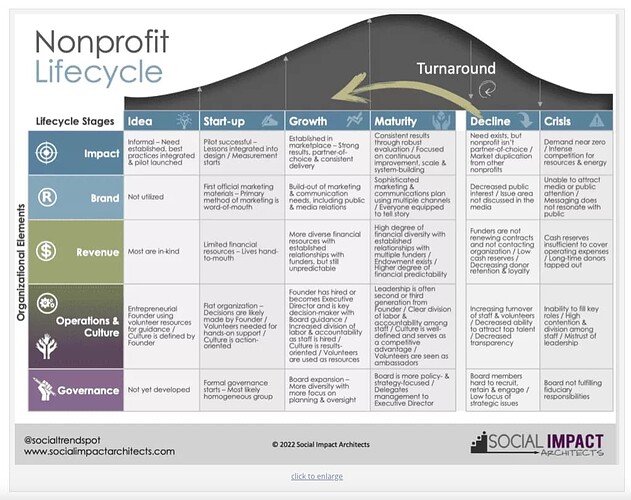![]() lightbulb moment
lightbulb moment ![]()
This thread, in addition to supporting serves as excellent fodder for one of our Code for Science & Society (CS&S) Pathways to Divergent Tech projects that @BarbaraSchack and I are working on, as related to IOP governance.
Here is a scaffolding for building out our projects conceptually, with some of the ideas from this thread integrated for a shared program (webinar) series concept:
Project I Title
Collaborative Program/Webinar Series
Problem: How is this project moving your project forward? What problem does it solve in moving your overall vision forward?
We envision a world where everyone, from a crisis relief worker cleaning up hurricane debris in the Bahamas to a policy maker in federal government reviewing a procurement process has the same access to the information, equipment, services, and support necessary to solve some of humanity’s most pressing problems. By putting the tools to design, iterate, and prototype products into the hands of community members, rapid collaboration, new revenue streams, and sustainable business models become achievable for entrepreneurial stakeholders in a global manufacturing ecosystem. Increased access also means that products being made are manufactured with fresh community knowledge and skill, which means better products for our society, as well as increasingly diverse engineering talent that will appeal to industry and larger manufacturing companies.
We have identified several areas of overlap between topics/areas of interest between multiple global communities related to distributed manufacturing, OSS, OSH, P2P, and 4IR. The general consensus is that there is strong interest in continuing conversations, and getting cross-industry dialogs happening more frequently. This could come in the form of collaborative OSH-focused events between global stakeholders.
Partners (potential, not limited to): What organization, population, or group of people outside of yourselves will you collaborate on this project with and why?
-
IASC: The International Association for the Study of the Commons is devoted to bringing together multi-disciplinary researchers, practitioners, and policymakers for the purpose of improving governance and management, advancing understanding, and creating sustainable solutions for commons, common-pool resources, or any other form of shared resource. In addition to Common Land, Urban Commons, and the Knowledge Commons currently identified by the IASC, there is interest in establishing an additional commons/facet dedicated to OSS/OSH.
-
GOSH: The Gathering for Open Science Hardware serves the needs of the global Open Science Hardware community through convening meetings, publications, activities and providing a forum for the community. They seek to eliminate separation between communities which limits collective community action to overcome further barriers to Open Science Hardware uptake and collaborate effectively, despite obvious commonalities in approach and a need for similar standards, best practices and enabling technologies.
-
OSHWA: The Open Source Hardware Association aims to foster technological knowledge and encourage research that is accessible, collaborative and respects user freedom. OSHWA’s primary activities include hosting the annual Open Hardware Summit and maintaining the Open Source Hardware certification, which allows the community to quickly identify and represent hardware that complies with the community definition of open source hardware.
Value Proposition: Why would the collaboration be mutually beneficial? Does it need to be? Do you already have a relationship with the group?
- Yes; all groups have identified shared/overlapping areas of interest, and have started integrating communications strategies. A single broadcast from an integrated comms method reaches additional stakeholders and crosses sectors to bring in new voices to the discussion.
Needs: What skills, connections, or support do you need to successfully complete this project?
- Agency for developing a community engagement and communications plan
- Domain knowledge in topic(s) of interest
- Convening/administrative/project management skills such as facilitating dialog/meetings, moderating online events, coordinating larger collaborative projects
Skills: What skills do you have to complete this project?
- See above/needs
Relationship structure you’re experimenting with: What relationship structure will you experiment with? What does it look like?
Adhocracies, where leadership is decentralised, decisions are made organically, and the focus is on completion of the work/getting the job done is an organizational relationship model that provides the flexibility for nimble decision-making processes and allows for creativity and interdisciplinary dialog/cross pollination. Examples of organizations that started with an adhocracy: Wikipedia, NASA.
A drawback of this model could potentially arise as the organisation matures through the growth/maturity period (as shown in the nonprofit lifecycle model by social impact architects below); interpersonal friction can become difficult to resolved but most importantly - there are larger boards/shareholders that may have difficulty tolerating an organization without a formal hierarchy (this is where education can come into play).
While this thread/continuation of the conversation we started at IASC isn’t necessarily a direct governance taskforce project, conducting all ideation/planning with our governance strategies and goals in mind is important.
Feedback on any of the information shared RE: the CS&S project, as related to this thread, is most welcomed. ![]()
